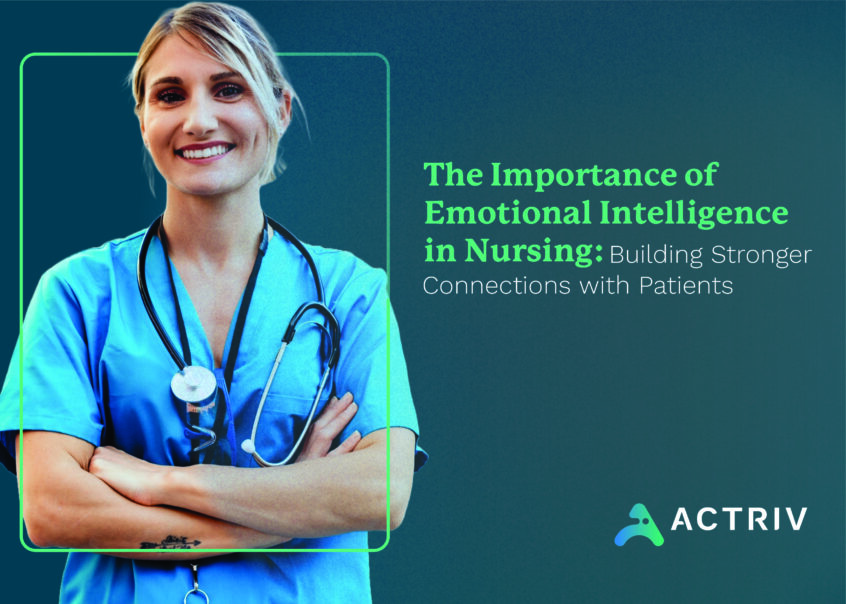As a nurse, your ability to understand and manage your emotions and those of your patients and colleagues can significantly impact the quality of care you provide. This is where emotional intelligence comes into play.
Emotional intelligence refers to an individual’s ability to recognize, understand, and manage their own emotions, as well as the emotions of others. In nursing, emotional intelligence has been critical in building stronger connections with patients, improving patient satisfaction, and increasing job satisfaction among nursing staff.
Research shows nurses with high emotional intelligence correlate positively with patient satisfaction and can improve the effectiveness of healthcare teams. Nurses with high emotional intelligence are more understanding, provide more patient-centered care, and can handle challenging scenarios, leading to better patient outcomes.
One study on nursing students found that higher levels of emotional intelligence were associated with more positive attitudes toward nursing and improved interpersonal communication skills. This can lead to increased job satisfaction and healthier work environments.
But what does emotional intelligence look like in practice? Here are a few examples:
Active Listening
Active listening is integral to nursing care, promoting trust, respect, and deep connections between patients and nurses. It involves giving your full attention to your patients, avoiding distractions, and using verbal and nonverbal cues to show your patients that they are being heard and valued. By actively listening, nurses can create a positive and trusting environment that enhances patient satisfaction and improves outcomes.
Empathy
Empathy is a crucial skill in nursing that enables us to feel and understand our patient’s emotions. By putting ourselves in their shoes, we can provide personalized, compassionate care that fosters strong connections with our patients. Practicing perspective-taking, emotional recognition, and emotional regulation are three essential tasks that help nurses develop strong empathic skills. Doing so can create a more caring, healing, and safe environment for our patients.
Effective Communication
Communication is vital to building strong patient relationships. Nurses can communicate effectively using nonverbal cues such as facial expressions and body language and by being clear and concise when explaining medical procedures or treatment plans.
Conflict Resolution
Strong conflict-resolution skills enable nurses to handle and resolve conflicts in nursing practice. With solid conflict-resolution skills, nurses can handle disputes and disagreements with patients and colleagues in a way that promotes understanding, respect, and positive outcomes. Conflict can arise in nursing, including disputes with colleagues, different care approaches, and differing opinions between patients and nurses. By utilizing conflict resolution skills, nurses can create a more positive and supportive work environment that fosters healthy and productive relationships between colleagues and patients.
We can build trust, empathy, and strong connections with our patients by developing and using emotional intelligence skills in our nursing practice. Finding the right nursing shift that fits our needs and strengths can enhance our ability to use these skills and provide excellent patient care. That’s why I encourage you to download the Actriv Healthcare App and explore the shifts available to find your perfect match. Let’s prioritize our emotional intelligence skills and find the best nursing opportunities that align with our goals and strengths.

